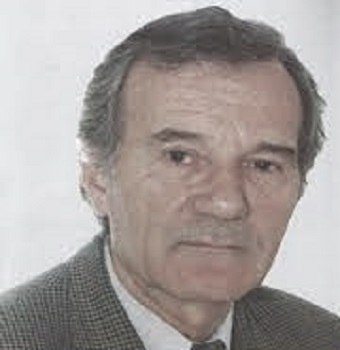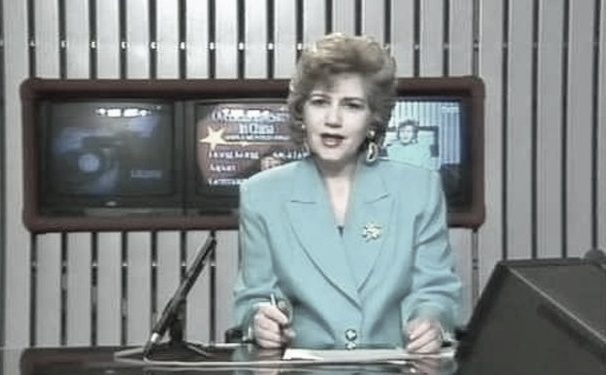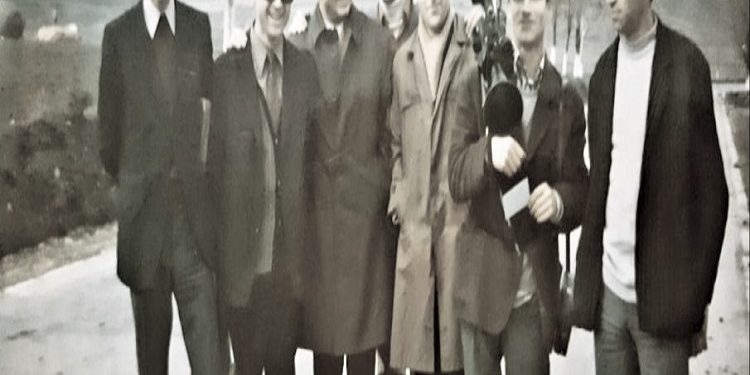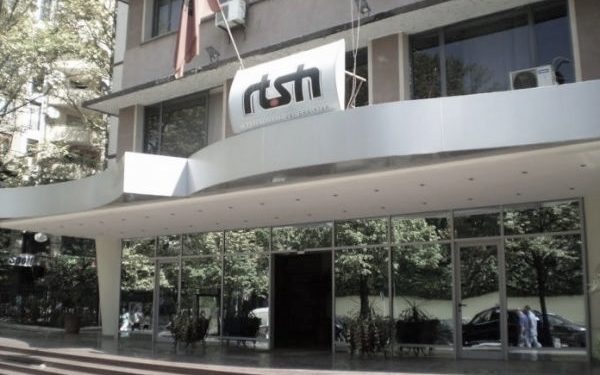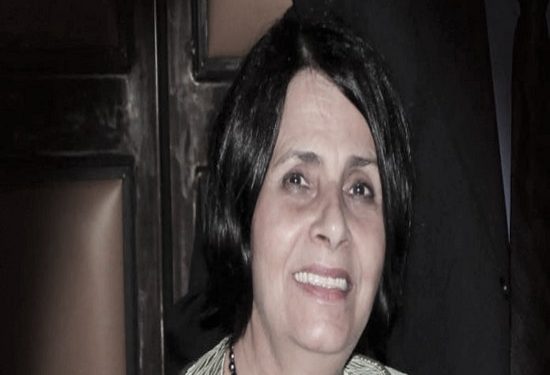By Timo Luto
– The testimony of the veteran journalist, Timo Luto: “In the presidium of the 8th Congress, Enveri and Mehmeti never communicated with each other, while the RTS had an order that Fiqret Shehu…”! –
Memorie.al / It were October 31, 1981. I was going to prepare a radio report for the National Historical Museum, which would be broadcast after its inauguration. For three consecutive days, with tape recorder in hand, I went in and out of this museum that had not yet opened its doors to visitors. I conducted many interviews and recorded many previously unknown documents and facts. The day before the inauguration, I submitted the radio report to the program. The museum was inaugurated the following afternoon. At the appointed time, Enver Hoxha himself and the entire Political Bureau came. At the entrance of the museum, Enver Hoxha was received by Professor Aleks Buda, President of the Academy of Sciences and Professor Skënder Anamali. They were his companions on this visit to the museum. One of the senior leaders of the state, when he saw that I was reluctant to go in front of others, to approach the microphone when Enver Hoxha was talking, opened the way for me to approach. I got very close, almost touching him; my head seemed half over his shoulder.
I was recording everything that was being discussed. We were on the first floor of the museum, in the Antiquities pavilion. Enver Hoxha listened to the explanations of well-known historians and asked from time to time. At one point, I easily turned my head back and saw that very close to me was Prime Minister Mehmet Shehu. I felt bad, that I had my back to him and I made a movement to leave space for him to approach, but he did not react, although he understood my gesture.
The Prime Minister kept the same distance. Enver Hoxha, the two professors, me and the editor-in-chief of “Voice of the People”, had created a group separated from the rest of the invited people, who were standing behind in the lobby of the museum. Perhaps, the explanations given by historians, or Enver Hoxha’s own interest in this period of our nation’s life, made him stay long in this pavilion, the only one he visited. After about 40 minutes of staying here, Enver Hoxha left through the back entrance of the museum. After him, Prime Minister Mehmet Shehu also left immediately. At the head of the ceremony was Ramiz Alia, who brought the visit to this museum to the end.
As soon as the visit was over, I returned to Radio to edit the chronicle. With the exception of Enver Hoxha’s visit, I had the rest of the chronicle ready. In the editorial office, I listened to the recording of Enver Hoxha’s conversations with historians and whitewashed those parts that seemed most appropriate to me. When the chronicle was ready, I told the director to come and listen to it. The general director, Çajup Rusmali, arrived together with the head of the Press Office in the Central Committee, Dhimitër Tona.
The chronicle began and everyone was listening to it in silence. I was more embarrassed than anyone, but also my wife Vjosa, who did it technically. When the part talking about Enver Hoxha’s visit to the museum ended, about four minutes, and I started talking about the other pavilions, the director called to stop the tape recorder. Vjosa pressed the stop button.
– “What is this?” said the director indignantly, standing up. – Comrade Enver, he stayed 40 minutes in the museum, while you finished it in 4 minutes”?!
– Yes, this is a chronicle, Comrade Çajup, – I answered, – and in the chronicle things are said in summary, they are not said verbatim.
– “Don’t show them to me,” insisted the director, even more nervous. – This chronicle is not broadcast like this, does it all over again”.
I don’t know what look I had on my face, but a fire had ignited my body, and after giving myself courage, I told him bluntly:
– This chronicle cannot be done otherwise.
– “Go find out about Comrade Enver’s conversation and put the whole thing in the chronicle”, – he ordered.
– As you say, this work won’t end even tomorrow, – I told him.
– “You will do it”, insisted the director again.
– This does not become the director friend, – I told him in a softer, friendlier voice.
After that he said flatly: – “Leave the tape recorder.” You are rested”.
I left the studio and went and sat at my desk in the newsroom. I was extremely shocked and was receiving an undeserved punishment. I calmed down for a moment when I thought that I was right and that I had done the job as it should. The director was not aware of that work, although he had been running the institution for several years. After a while he also came to the newsroom where I was standing. He sat in front of me and without anger, but seriously said: – “We are broadcasting the chronicle as it is, because we don’t have time, but you will answer”!
– Agreed, – I told him.
He got up and leaving, with the worry that still gripped him, said that for the next hour of the broadcast, I should add some parts where I talk about Enver Hoxha.
After the director left, Agimi came in, who told me not to be upset, that the chronicle was good and that they had filled his mind, not to insist anymore.
When Thanas Nanoja left for the second time, Çajup Rusmali came in his place; nobody knew anything about it. Unlike his predecessors, Çajupi, the new director, was not aware of the specifics of work at Radio-Television. He had worked in the building next to the boulevard. The grandest building in the capital, the most elegant, the most silent, the most enigmatic. Even those who entered and exited the Central Committee building looked somehow different and had no connection with life outside it. Its doors and windows were always closed and I never saw how the employees entered and exited. To create the impression that the building was empty. In all those years that I worked at Radio-Tirana, I was never able to enter it, not even because of my duty.
Orders and orders that came from here went directly to the General Director and those materials that had to be transmitted, were taken to full microphones and read to the last word, even the date at the end of the text.
Even when there was interest from the Central Committee, someone from the Press Office would come to see some important chronicle. At first, he went into the director’s office, and then slowly, he came to the studio to listen to the news that was going to be broadcast. In general, they did not say anything. When they had no remarks, they would say through their teeth: “good” and leave accompanied by the director. On November 1, 1981, the VIII Congress of the Labor Party of Albania was held in the hall of the Opera House. On the facade, a large portrait of Enver Hoxha. Above on the terrace, in capital and illuminated letters, written: “GLORY TO THE ALBANIAN LABOR PARTY”!
Already in the early hours of the morning, in Skënderbej Square, thousands of employees from the capital’s enterprises gathered, as well as artistic groups, who filled the enthusiastic atmosphere of this day with music and dance. Delegates entered the hall in groups. In the background of the presidium of the congress, a red flag was placed, with the portraits of the classics of Marxism-Leninism: Marx, Engels, Lenin and Stalin, and under them was written: “VIII Congress of the PPSh”.
As usual, the entrance of Enver Hoxha and other members of the Political Bureau were met with long ovations, so much so that Enver Hoxha, waving with his hand, was also trying to calm the hall.
The congress was opened by the communist veteran of the first hours, Miha Lako, a pensioner from the city of Korça. On his right side stood Enver Hoxha and on his left Mehmet Shehu. There was a lot of seriousness in this congress, a lack of communication between the two greats, who did not turn their heads from each other for a single moment. I was following them from time to time, these two figures. They never sat next to each other, in every session, between them; there would be someone who led the proceedings.
Enver Hoxha did not participate in one of the sessions led by Mehmet Shehu. What had happened? Nothing was known, but a careful look made it clear that there was a grudge between them. If it were temporary, it would have passed on one of the days of the congress week! I got the idea that, between them, there was a clash, a fight or dissatisfaction, because of a dispute between them. This was how far my prediction went, glancing at them from time to time, from the place at the end of the hall, where the press was placed. I looked at and remembered similar events, when the two of them were always together and constantly communicating with each other.
In the report he gave on the directives of the congress for the next five-year plan, Mehmet Shehu, was completely cold, with a uniform reading, without the usual enthusiasm, pale on his face, so that from where I was, he seemed lifeless. Then I learned that Television was ordered not to show his wife, Fiqrete. One of the cameramen in the hall was worried why her portrait was not broadcast by the director when he fixed it on camera. The order had gone to the director; the others should not know anything.
The seriousness of this political event hid the drama that had begun to play out at the head of the state. The enthusiasm of the delegates was evident. The connections of the Party leadership, with the ordinary working people, appeared in every session. Next to Enver Hoxha, distinguished workers and cooperative workers, soldiers of the “Heroes of Socialist Work” sat. These were the most honored and for them this day, this moment, would remain unforgettable. Yes, that was one side of the coin, what it seemed. The other side had not begun to appear. The silence and lack of communication between Enver Hoxha and Mehmet Shehu spoke volumes. Something had happened, but it was kept secret, to preserve the atmosphere of the congress, not to spoil the party…!
Intermezzo
In 1948, Mehmet Shehu, then the Chief of the Army General Staff, was assassinated by the Yugoslav Communist Party and its supporters in the Albanian Communist Party. The behind-the-scenes created and led by the Albanian Minister of the Interior, Koçi Xoxe, managed to dismiss him from office and sentence him to house arrest, in his hometown, in the village of Çorrush in Mallakastra, with police at the door. The measure against Mehmet Shehu was also a blow to Mallakstra. He had become a symbol of this province, that’s why many comrades, friends and comrades-in-arms did not agree with him.
The dismissal of Mehmet Shehu was the talk of the day at that time, in every family. The entire opinion in the province demanded not only clarification, but also the correction of this measure. The war had only been over for four years and its hearth was still warm, its warriors still alive, strong and ready for another engagement. Even the trust in the country’s leadership, emerging from this war, was strong.
In these circumstances, driven by the unclear situation, some men with authority in the province, such as: Sulo Mustafaj, Musa Brahimi and Bajram Meçe from Hekali, Hysen Zeqo from Klosi, Refat Rexhepi from Greshica and Azis Dule from Fratari, went to Çorrush to meet and talk with Mehmet Shehu. They stayed with him, in his house, talked all night, and proposed, if he wished, that they were ready to start the war once more, to defend the power that was being endangered, power won even with the blood of the sons of this province.
Mehmeti did not support what they proposed, he expressed his trust in Enver Hoxha, and told them; if the situation were to worsen and this would endanger Enver Hoxha himself, they would once again stand up in the war, to protect the victory achieved with great sacrifices. Those respectable men had forth trusted in him, and in expectation and readiness, for any unexpected thing that might happen.
The pro-Yugoslav wing was defeated and Mehmet Shehu returned to Tirana, with the position of Minister of the Interior, being, as in the war, one of the strongest supporters of Enver Hoxha, his right wing, until this day, in this last congress for him, when for a single moment, he did not stand by and did not exchange a single word or glance with Enver Hoxha. Who could have imagined that this grudge had begun to count the last days of the Albanian prime minister?
In the evening of December 18, 1981, I returned to Tirana, after a service in the south of the country. Like every other time, I first went back to my mother-in-law’s house, which was not far from my house, because when I was away, my wife and children stayed at her place more. As soon as I entered, my mother-in-law came in front of me and told me that she was going to give me bad news. I was shocked without hearing what everyone said to me, because I immediately thought of my old man, but my mother-in-law did not delay in telling me:
– Mehmet Shehu killed himself.
The premonition I had that; the misfortune was related to me, it somewhat dampened the pain, or the regret I had from this news. I experienced the death of Mehmet Shehu a lot. Because of the deep knowledge I had of his figure, and what my father had told me, I had created certain adoration for him. The many services I had had in places and events where he had been had strengthened my sympathy. All that night, I did not sleep. Rather, I thought that his death in this way was not only about him, but about all of us. In what way, I could not explain.
In an anniversary of the Polytechnic “7 November” in Tirana, once the American Technical School, where he had been a student, praised the director of the school, Harry Fultz, who valued work above all. “Work made America,” he said. He had sympathy for learned people and could not stand the ignorant and servile. He hated naive behavior in anyone, but especially in those around him. He cared a lot about the common property and loved his country and people. Although he had several assistants for his work, he prepared everything himself. His memories of the war are beautifully written, as if he were a writer. He expressed his literary inclination one day at the Journalists’ Club, the writer Petro Marko, where he went every day.
– “Mehmeti,” he said, “if he had not been involved in politics, he would have been an outstanding writer, but he was more determined to be a soldier.” Mehmet was a friend of Petros, a friendship that was born in the Spanish War and that lasted until the end of his life. Before publishing each work, Petroja sent it to Mehmet Shehu to read. In one of the conversations at the Club of Journalists, where I often liked to go to listen to the great and simple, Petro Marko, he recalled one of the difficult events of his life.
– “I had just come out of prison,” he said. – It was the year 1950. With the help of Sterjo Spasses and Spiro Xhai, who worked at the Ministry of Education, I started working as a literary proofreader at the “Naim Frashëri” Publishing House, but even there, after some time, I was fired with reason; organic abbreviation. I was left without work again, which meant without bread. I decided to write a letter to Mehmet Shehu, who was the Minister of the Interior. Mihallaq Ziçishti, deputy minister, found me with the letter in hand before the entrance of the ministry. When he saw me, he stopped and asked me what I needed. I told him that I had a letter for his Excellency, Mehmet Shehu.
– Why do you call it brilliance? – He told me. – You have a friend. Give it to me; – he said that I am giving it to him already.
– In the letter, – said Petroja, – I asked him to help me with a job. The next day, a person came to the hut where I lived and told me to go with him, because Mehmet Shehu was looking for me. When I entered his office, Mehmeti stood up and hugged me.
– Where have you been, my dear? – He told me.- And you, as soon as you got out of prison, you should have come to me. He was touched by this meeting, but also by my miserable appearance. We stayed together for over an hour. After a few days, I started working as a teacher at the Pedagogical School. – To Mehmet, I know for his honor also for the help he gave me in the publication of my books, for which there was, always something not to be published”.
The situation in Radio-Television, after the event of the death of Mehmet Shehu
In the morning I went to the editorial office. Being from the same province as the prime minister dead and convicted, not for the crime against me, but for something that, as yet, had not been said, it seemed to me that everyone was eavesdropping on my behavior. I couldn’t stand it. The silence he possessed in the newsroom was more severe. I went out and without telling anyone, I went home. Unconsciously, I took the road that connects Radio-Television with the big boulevard. All kinds of thoughts came to my head. Why was I experiencing his death so much?!
I had no personal acquaintance with him, nor had I benefited from him. Perhaps, something could happen to me, dismissal from the institution where I worked, just for the fact that I was from the same province as the prime minister. There were many such cases in this institution. I walked and tried to remember if I had talked about him and how passionately I had told him the events related to the life of the prime minister, now convicted.
I could not think otherwise, when about his death, simple news was given on Television and Radio, and then the news continued as on an ordinary day. No notice of a funeral ceremony, or of any day of mourning. What I saw during the proceedings of the congress, a month or so ago, the coldness between him and Enver Hoxha, the grudge kept secret, but which nevertheless caught the eye, that’s where it ended.
When I had arrived close to the boulevard, with the tent leaking rain on the side, I was confronted by Muçi, my cousin. Thinking that I was not going towards the house where the body of the deceased was still inside, he told me with great concern not to stop and to continue along the boulevard. I told him I was going home and that was it.
He turned to the group of servicemen standing on the sidewalk on the side of the boulevard. When I took the turn to go towards “Skënderbej” square, I once again turned my head from the house, where I saw a coffin being taken out from the side gates. The rain continued to fall in torrents, accompanied by lightning and thunder. The streets were almost empty. The city looked abandoned…! Memorie.al




